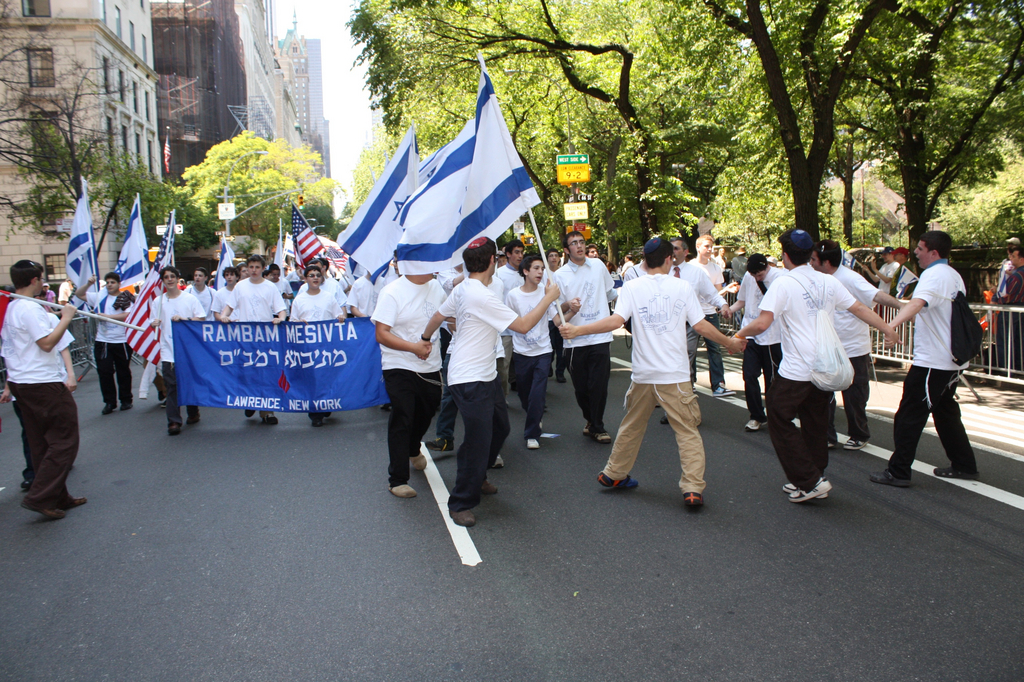HAFTR and Rambam to split
Dual effort to place Shalhevet girls, or possibly save new school
By Mayer Fertig
Issue of July 17, 2009 / 25 Tammuz 5769
The three-year-old partnership between HAFTR and Rambam Mesivta formally know as Machon HaTorah is finished, according to Rambam’s president, Yaacov Gross.
“Looking at it from the perspective of a Rambam parent there is no need to have a Machon because there is absolutely nothing that Rambam is getting out of the relationship,” Gross said. His comments came a week after HAFTR said it would no longer fund the deficit of Shalhevet, the one-year-old high school for girls.
Shalhevet parents planned to meet Wednesday to consider if the school could be saved. A building in the Five Towns has been located for the 2009-2010 school year, if parents want it, Gross said.
Headmasters of other high schools, including Central, SKA, HANC, NSHA and Magen David “all have been wonderful, supportive and have demonstrated great compassion and sensitivity for the Shalhevet girls,” said Rabbi Zev Friedman.
The result is a “grace period where the girls don’t have to run to register right now. Parents have a short window to see if we can make a go of this realistically,” Gross said. It’s “up to the parents of Shalhevet, if this is a direction they want to take. We’re saying we’ll do what we can, making Herculean efforts to give Shalhevet the option to have the school if they want it.”
The Machon partnership agreement said “clearly and expressly” that Shalhevet would be built and that HAFTR would pay its deficits, and also provide a gym and a Beit Midrash, said Gross. In exchange, Rambam’s Rabbi Yotav Eliach and Rabbi Friedman would provide educational leadership. Ground was broken last year on a Beit Midrash-gym facility to be built on Central Avenue on the former site of the Nassau Herald building.
“The gym and Beit Midrash has not been built and I have no reason to think that it will be built,” Gross said. He does not expect the dissolution of the Machon to impact Rambam, which “made it on its own for the first 14 years.”
Gross called the Shalhevet deficit a “tiny, tiny number.”
“The idea that the deficit was the reason to close Shalhevet — especially for someone really familiar with the numbers as I am — seems harder and harder to justify,” he said. Rather than a truly new school, “Shalhevet is really just an expansion of the existing program at Rambam. I would say that the biggest thing in the Shalhevet deficit was the rent on the Beth El building, which HAFTR had for years and years.”
A number of Shalhevet instructors are HAFTR faculty, he added. HAFTR is “left with the salaries of the teachers that they’re going to have to pay.” Even tuition disparities could remain, if any Shalhevet students enter HAFTR High School at their existing tuition level.
“I think the HAFTR parents have been sold a bill of goods, that the high tuition bills of the HAFTR parents was a result of the Shalhevet deficit,” Gross said.
HAFTR co-president Yaron Kornblum called the comments “unfortunate.”
“In today's economic environment, the losses were going to increase significantly for Shalhevet. By any measurement, these are not "tiny" numbers. If Shalhevet were to continue another year, the losses would have severely affected operations at HAFTR and Rambam,” said Kornblum. “Despite the disparaging remarks made about HAFTR, we are confident that HAFTR will be continue to be a leading Modern Orthodox yeshiva for many years to come.”
Jack Margareten is a father of three boys who attend HAFTR and a board member who voted to stop funding Shalhevet because “to have done anything else would have been reckless and would have led to the demise of HAFTR as a viable institution. To me it was plain as day,” he said.
“You should be very clear — in that room there were plenty of supporters of Machon. I know people that were pro-Machon who voted to stop the funding of Shalhevet. They were separate issues.”
Related Stories

 39.0°,
Fair
39.0°,
Fair 




